Florian Stelzer
Institute of Mathematics, Technische Universität Berlin, Germany, Department of Mathematics, Humboldt-Universität zu Berlin, Germany
Infinite-dimensional Folded-in-time Deep Neural Networks
Jan 08, 2021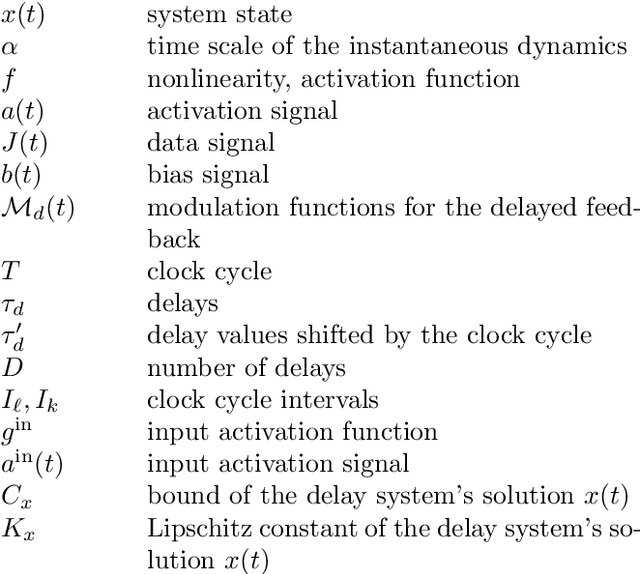
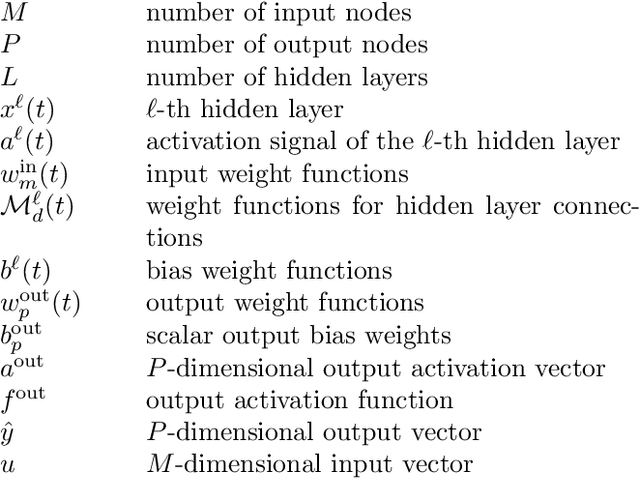
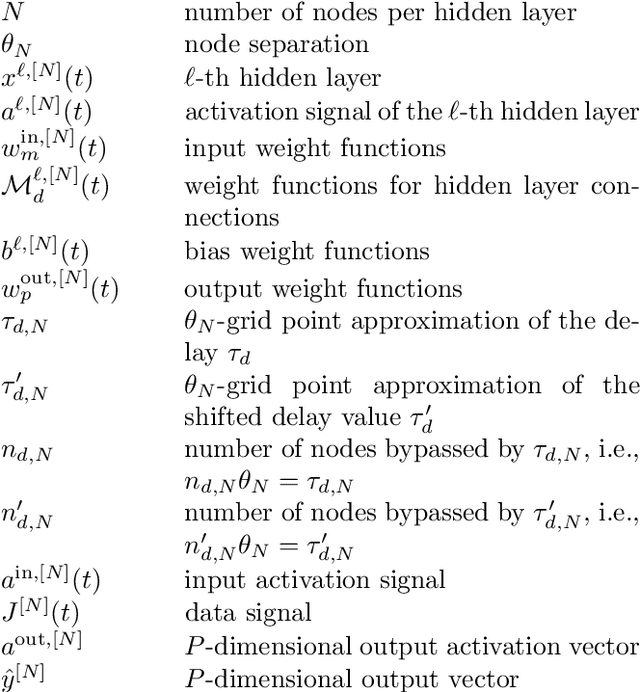
Abstract:The method recently introduced in arXiv:2011.10115 realizes a deep neural network with just a single nonlinear element and delayed feedback. It is applicable for the description of physically implemented neural networks. In this work, we present an infinite-dimensional generalization, which allows for a more rigorous mathematical analysis and a higher flexibility in choosing the weight functions. Precisely speaking, the weights are described by Lebesgue integrable functions instead of step functions. We also provide a functional backpropagation algorithm, which enables gradient descent training of the weights. In addition, with a slight modification, our concept realizes recurrent neural networks.
Deep Learning with a Single Neuron: Folding a Deep Neural Network in Time using Feedback-Modulated Delay Loops
Nov 19, 2020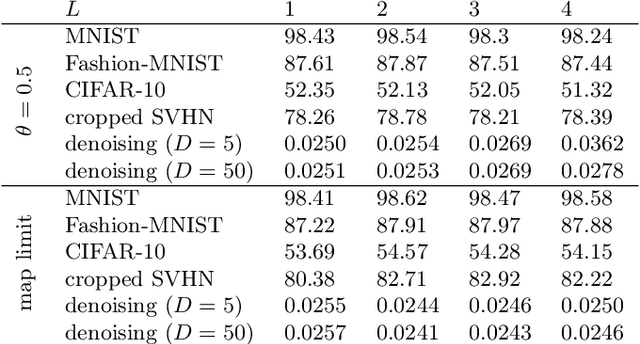
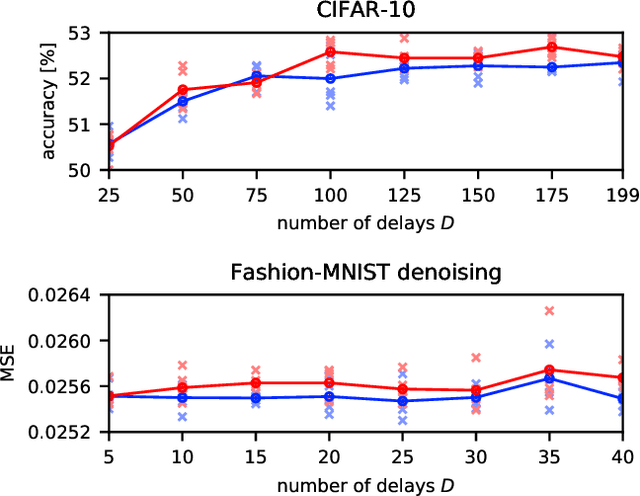
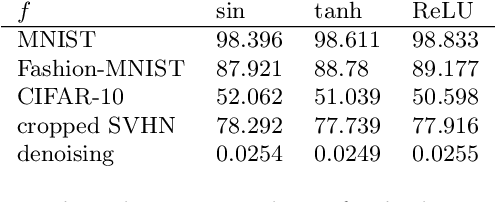
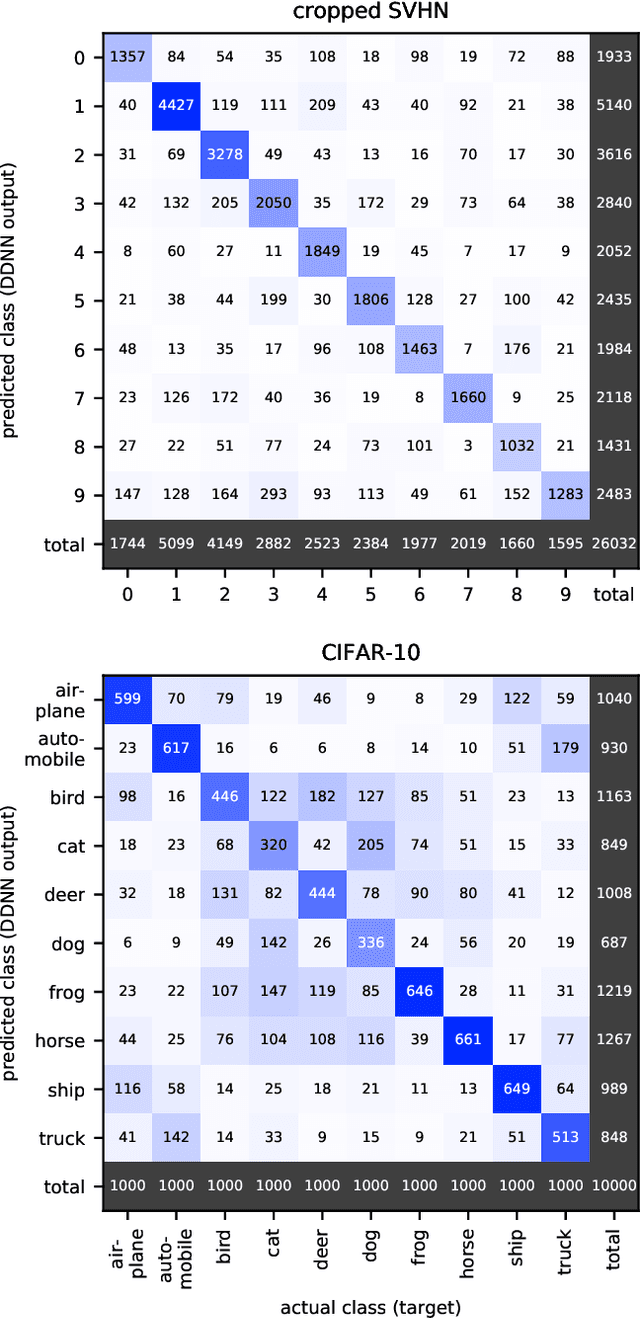
Abstract:Deep neural networks are among the most widely applied machine learning tools showing outstanding performance in a broad range of tasks. We present a method for folding a deep neural network of arbitrary size into a single neuron with multiple time-delayed feedback loops. This single-neuron deep neural network comprises only a single nonlinearity and appropriately adjusted modulations of the feedback signals. The network states emerge in time as a temporal unfolding of the neuron's dynamics. By adjusting the feedback-modulation within the loops, we adapt the network's connection weights. These connection weights are determined via a modified back-propagation algorithm that we designed for such types of networks. Our approach fully recovers standard Deep Neural Networks (DNN), encompasses sparse DNNs, and extends the DNN concept toward dynamical systems implementations. The new method, which we call Folded-in-time DNN (Fit-DNN), exhibits promising performance in a set of benchmark tasks.
Performance boost of time-delay reservoir computing by non-resonant clock cycle
May 07, 2019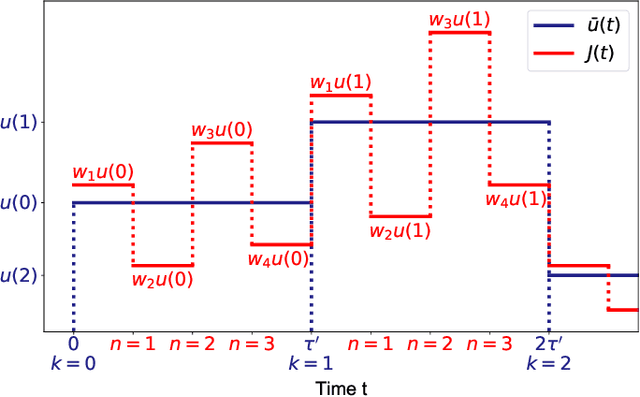

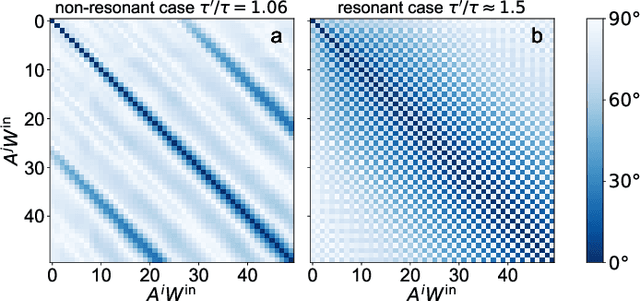

Abstract:The time-delay-based reservoir computing setup has seen tremendous success in both experiment and simulation. It allows for the construction of large neuromorphic computing systems with only few components. However, until now the interplay of the different timescales has not been investigated thoroughly. In this manuscript, we investigate the effects of a mismatch between the time-delay and the clock cycle for a general model. Typically, these two time scales are considered to be equal. Here we show that the case of equal or rationally related time-delay and clock cycle could be actively detrimental and leads to an increase of the approximation error of the reservoir. In particular, we can show that non-resonant ratios of these time scales have maximal memory capacities. We achieve this by translating the periodically driven delay-dynamical system into an equivalent network. Networks that originate from a system with resonant delay-times and clock cycles fail to utilize all of their degrees of freedom, which causes the degradation of their performance.
 Add to Chrome
Add to Chrome Add to Firefox
Add to Firefox Add to Edge
Add to Edge